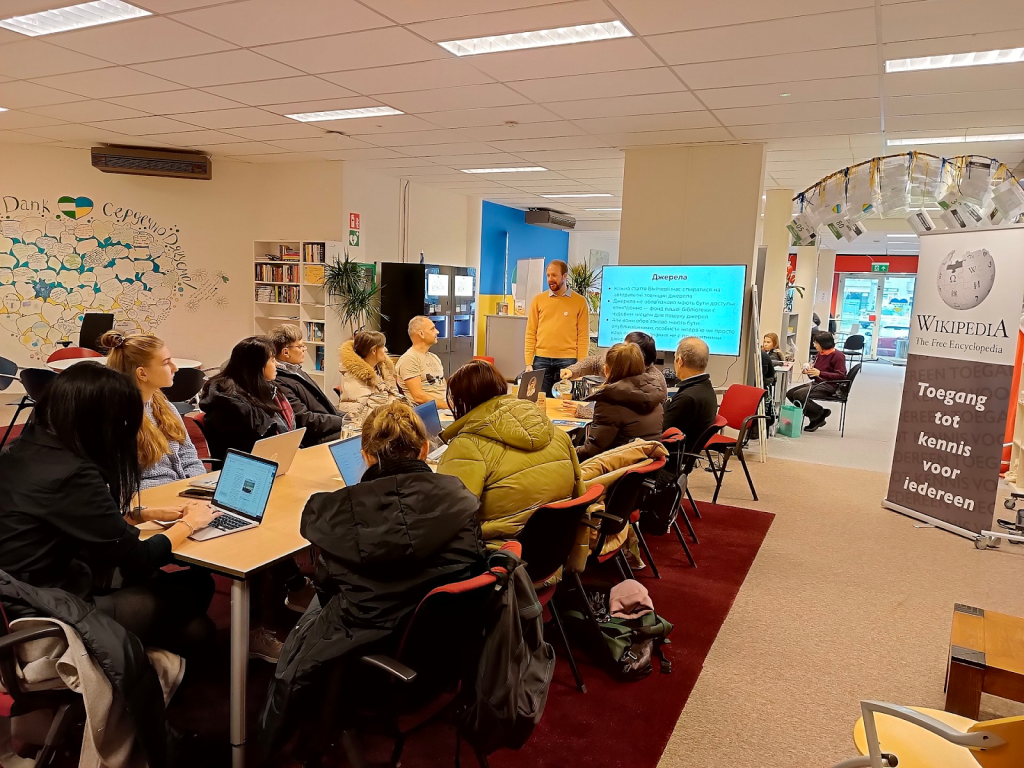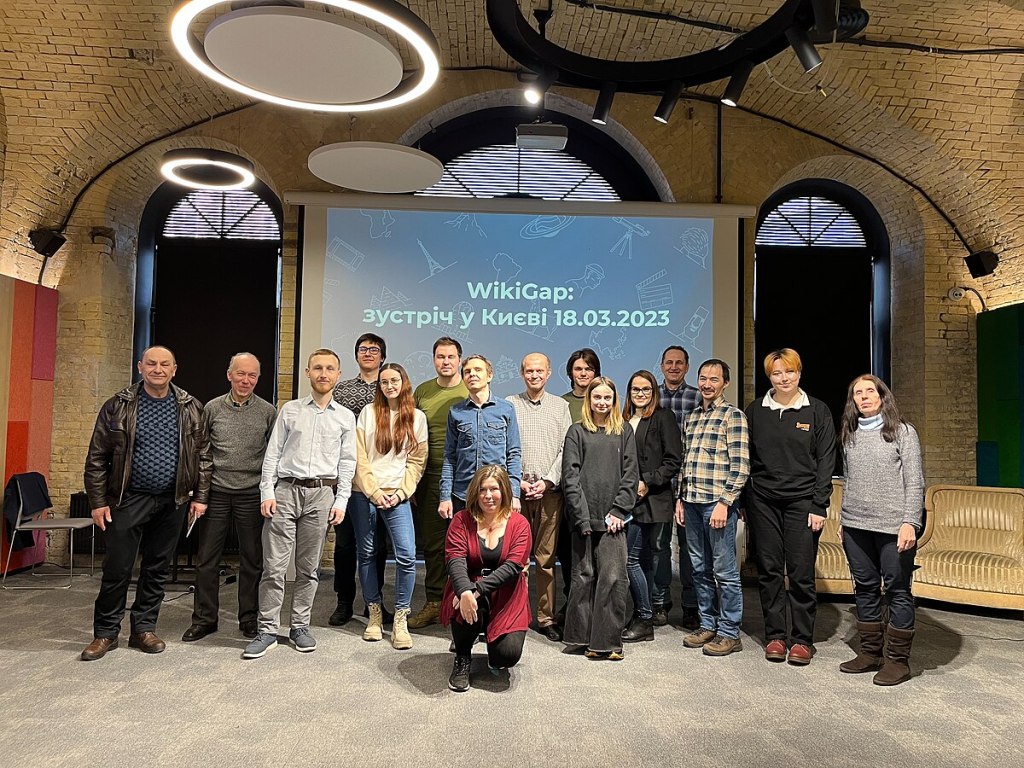Wikimedia Ukraine has been working to advance free knowledge in Ukraine for almost 15 years now. The past year continued to be among the most difficult ones in our history as Russia’s war against Ukraine goes on with the whole country undergoing almost daily attacks.
Yet, thanks to the dedication of volunteers and committed work of the whole team, we’ve managed to do a lot to advance free knowledge. To give just a few examples, Wiki Loves Monuments in Ukraine gathered close to 20,000 cultural heritage photos, over 100 people participated in our annual Wikiconference, and 1,500 articles about women on Wikipedia and Wikiquote were written thanks to our campaigns.
Traditionally, here’s a brief look at some highlights from our work in the past year. The programs mentioned here cover only a part of our work; we’ll publish a detailed 2023 report in February.
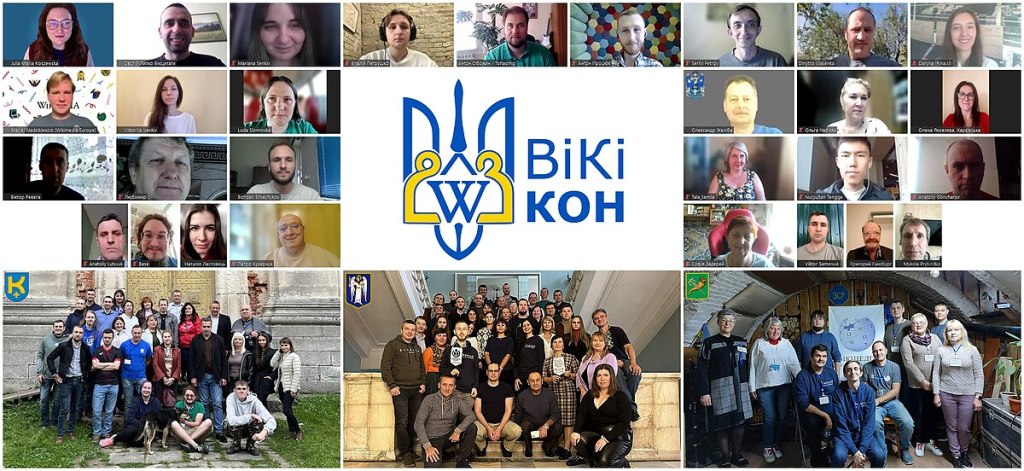
1. Supporting the community of volunteers during the war, and telling their stories
With the start of the full-scale war, Wikimedia Ukraine has launched a program to support the local community – providing various kinds of assistance to the volunteers affected.
One aspect of this work that’s public is highlighting stories of community members affected by the war to the Ukrainian and international community. For example, in 2023 we wrote about a university professor and a teacher who had to flee Russian occupation and interviewed Oleh Shostak, Ukrainian Wikipedia’s most prolific editor.
- Learn more: “2022 Russian invasion of Ukraine” portal on Meta-Wiki • full list of stories published by Wikimedia Ukraine
2. Wiki Loves Monuments in Ukraine – almost 20,000 photos of Ukraine’s cultural heritage
Wikimedia Ukraine has been supporting Wiki Loves Monuments in Ukraine every year since 2012. Part of the international competition, it aims to gather a database of freely licensed photos of Ukraine’s cultural heritage monuments for Wikimedia Commons, as well as to draw attention to cultural heritage protection.
Despite the war and subsequent security restrictions, this year the contest in October gathered almost 20,000 photos from 278 participants – a third place among 46 participating countries. Apart from main prizes, we had a range of special nominations that helped discover entire layers of cultural heritage not included in official state lists.
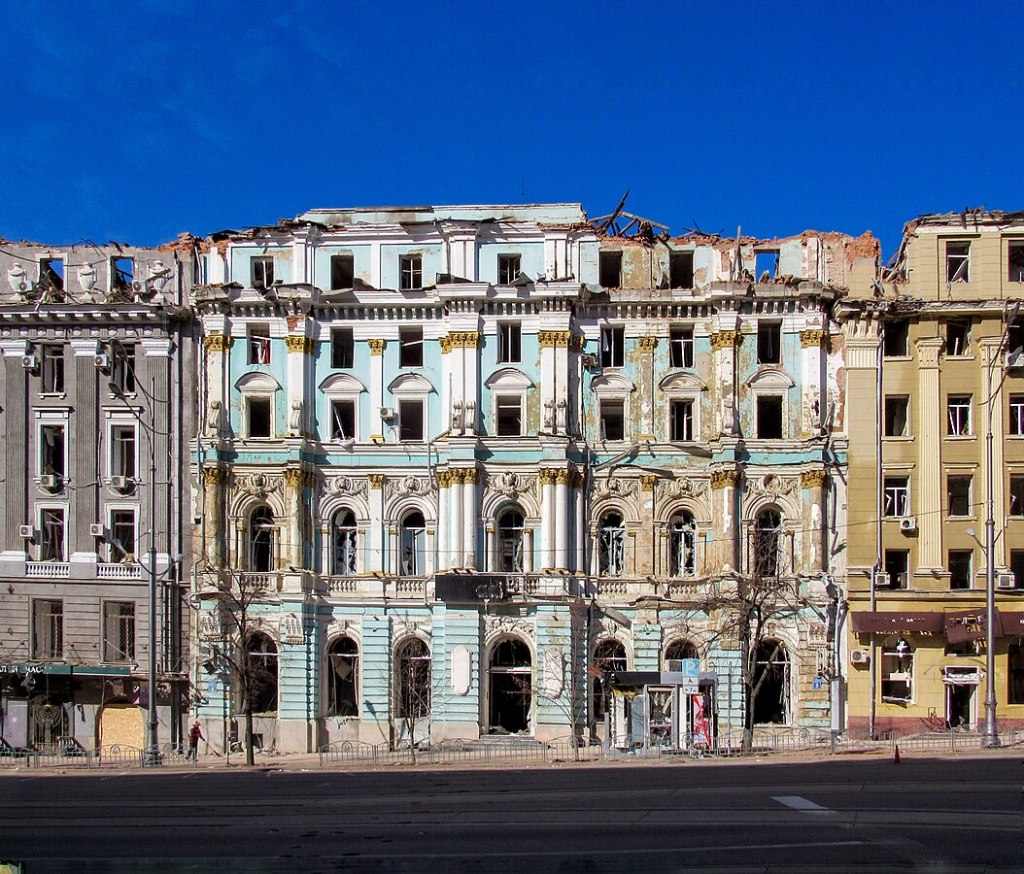
3. Wiki Loves Earth – supporting record results on the international level, first Ukrainian contest since the full-scale war
After a break in 2022 because of the war, in 2023 we organized the Wiki Loves Earth in Ukraine photo contest. Ukraine came third among 50 participating countries by the number of uploaded photos as 121 participants contributed over 4,600 pictures. Two Ukrainian photos made it to the top 20 international winners.
A separate international team supported by Wikimedia Ukraine organizes Wiki Loves Earth at the global stage. The project saw record results in 2023 as 50 countries and territories held their contest, bringing over 61,000 nature heritage photos from 3,300 participants.
- Learn more: Wiki Loves Earth 2023 international winners
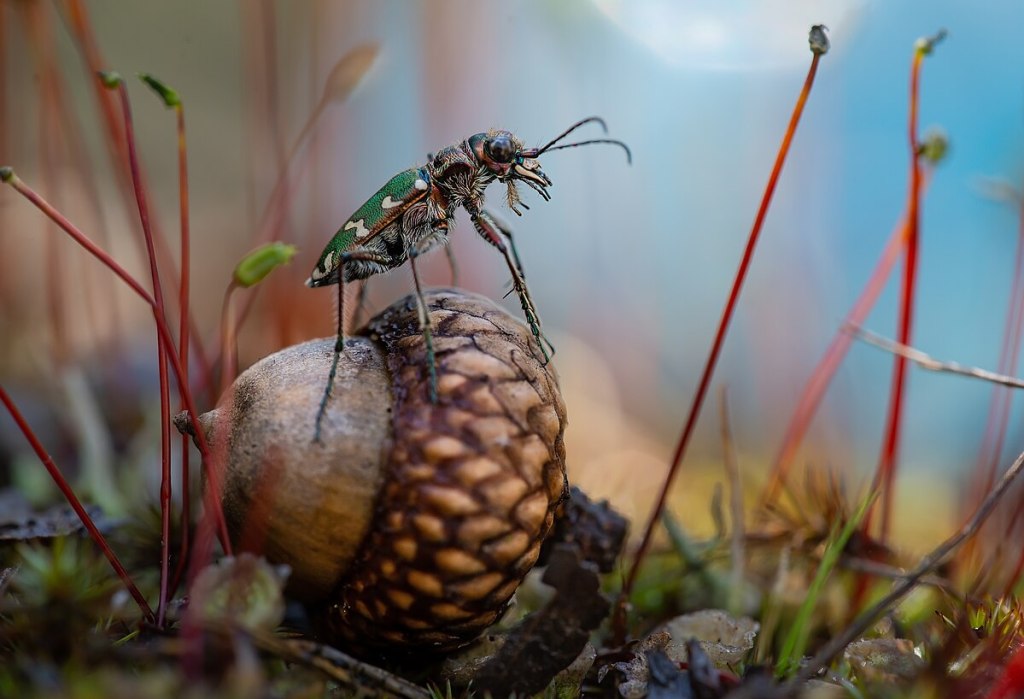
4. “Reading Wikipedia in the Classroom” – our first mass open online course for educators
In 2023 we launched our first mass open online course about Wikipedia. 300 Ukrainian educators enrolled in the course in July and studied to design an integration of Wikipedia in their lessons.
The course helped increase awareness of how Wikipedia works among teachers, dispel myths, and direct them on how to use Wikimedia projects in their work. After the successful graduation of the first cohort, we are scaling the course so that significantly more educators can take it in the future.
- Learn more: Diff story about the course
5. Developing the community of educators, online and in-person
Throughout the year, we helped educators integrate Wikipedia and wikiprojects into their curricula. Part of this work is developing a community and facilitating connections and experience exchange among the educators.
In July, we held a two-day offline conference in Kyiv, attended by 35 people. Every month we organize online meetings to share experiences and learn useful skills like working with Wikidata or accessing Wikipedia offline. We also support local meetings of educators, such as presentations of the Wikipedia handbook for teachers.
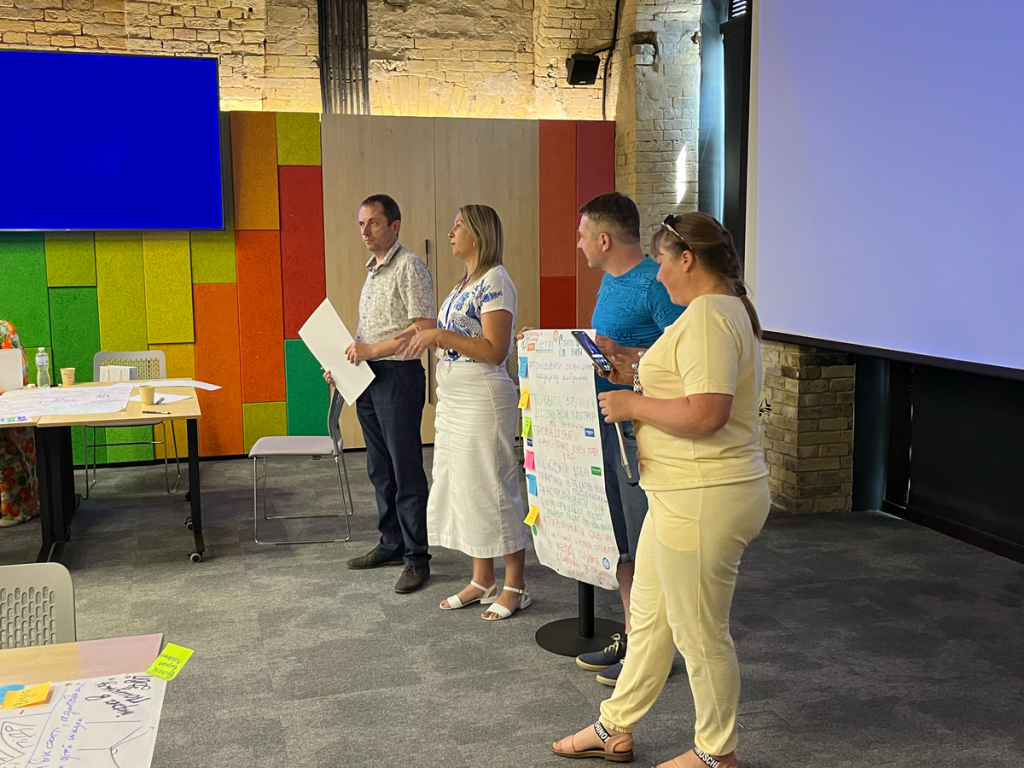
6. Wikiconference 2023 – our largest conference to date
Every year we gather the community from across Ukraine for Wikiconference. The event has been held annually since 2011, but last year it was the largest by the number of participants.
The conference consisted of four separate meetings in September and October: an online day, a two-day conference in Kyiv, a conference and wikitraining in Komarno (Lviv region), and a meetup in Kharkiv. Overall, more than 100 people joined the event.
- Learn more: Diff story about the conference
7. Wikimarathon to mark Ukranian Wikipedia’s birthday, in Ukraine and abroad
Every year we use Ukrainian Wikipedia’s birthday on January 30th as an opportunity to organize Wikimarathon, an ambitious campaign that aims to recruit as many new volunteers as possible to Wikipedia. The idea is for everyone to present Wikipedia an article to celebrate its birthday.
In 2023 Wikimarathon lasted from January 26 to February 5 and included an online campaign and 35 offline meetups. 346 participants joined and created almost 1900 new articles. Because of the full-scale Russian invasion, for the first time local events took place not only in Ukraine but also abroad: in Poland, the Netherlands, Spain, and Israel.
- Learn more: Diff story about Wikimaraton 2023 results
8. Supporting and developing the local community via trainings, awards, and on-demand support
One of Wikimedia Ukraine’s goals is to help support and develop Ukraine’s Wikimedia community. For example, in 2023 we:
- held a series of online trainings on combating disinformation;
- continued to recognize the most active Wikipedia contributors with the “wiki condensed milk” program;
- supported initiatives from within the community, such as the school of patrollers.
Learn more: Diff stories about the “wiki condensed milk” program and webinars on disinformation
9. Campaigns to improve gender balance on Wikipedia and sister projects
We are consistently working to help bridge the gender gap on Ukrainian Wikipedia and sister projects. In 2023 we held three major campaigns:
- WikiGap on Ukrainian Wikipedia in March;
- #SheSaid on Ukrainian Wikiquote in October-November;
- “She Did It” marathon on Ukrainian Wikipedia in November.
As part of these projects, we organized two offline meetups in Kyiv in March and November. Yet most of the work occurred online as over 100 participants created and improved more than 1500 Wikipedia articles and Wikiquote.
- Learn more: Diff story about WikiGap 2023 in Ukraine
10. International presence, at Wikimania and elsewhere
Throughout the year we participated in international Wikimedia events to learn and share. At Wikimania in Singapore, we spoke about decolonizing knowledge and shared the experience of the “wiki condensed milk” program and Ukraine’s Cultural Diplomacy Month. We spoke about Ukrainian Wikipedia’s experience combating disinformation at the re:publica conference in Berlin. And, of course, we tried to share as much on Diff as possible – and even shared with others about how we are approaching sharing on Diff 🙂
A version of this article was originally published on Wikimedia Ukraine’s blog in Ukrainian.

Can you help us translate this article?
In order for this article to reach as many people as possible we would like your help. Can you translate this article to get the message out?
Start translation
